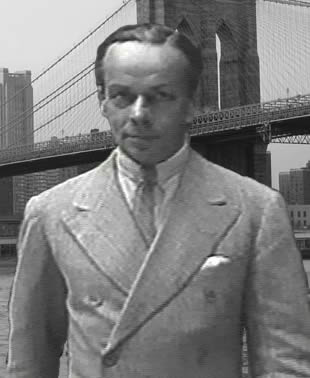
Meher Baba was an Indian spiritual master who said he was the Avatar, or God in human form, of the age. A major spiritual figure of the 20th century, he had a following of hundreds of thousands of people, mostly in India, but with a significant number in the United States, Europe and Australia.

Sai Baba of Shirdi, also known as Shirdi Sai Baba, was an Indian spiritual master and fakir, considered to be a saint, revered by both Hindu and Muslim devotees during and after his lifetime.

Meherabad was originally an ashram established by Meher Baba near Arangaon village, India in 1923 about 9 kilometres (6 mi) south of Ahmednagar. It is now the site of Meher Baba's samadhi (shrine/tomb) as well as facilities and accommodations for pilgrims. Many buildings mostly associated with the earlier decades of Baba’s work, the graves of disciples, and a range of pilgrim accommodation and charitable establishments are also there. Many Baba-followers work or live in the vicinity. There are also some public dispensaries and schools.
Satguru, or sadguru, means the 'true guru' in Sanskrit. The term is distinguished from other forms of gurus, such as musical instructors, scriptural teachers, parents, and so on. A satguru has some special characteristics that are not found in any other types of spiritual guru. Satguru is a title given specifically only to an enlightened rishi or sant whose life's purpose is to guide the initiated shishya on the spiritual path, the summation of which is the realization of the Self through realization of God.
The term Perfect Master may refer to:

God Speaks: The Theme of Creation and Its Purpose is the principal book by Meher Baba, and the most significant religious text used by his followers. It covers Meher Baba's view of the process of creation and its purpose and has been in print continuously since 1955.

Upasani Maharaj, born Kashinath Govindrao Upasni, was an Indian spiritual teacher, considered by his disciples to be a satguru. He lived in Sakori, British India, and is said to have received God-realization from Sai Baba of Shirdi. Upasani himself was one of the principal spiritual teachers of Meher Baba.

Hazrat Babajaan was a Pashtun Muslim saint considered by her followers to be a Sadguru or Qutub. Born in Balochistan, Afghanistan, she lived the final 25 years of her life in Pune, India. She was the original master of Meher Baba, an Indian spiritual master.

God in a Pill? Meher Baba on L.S.D. and The High Roads was a 1966 pamphlet containing messages from Meher Baba speaking out against taking drugs such as marijuana and LSD, ultimately saying they were harmful "physically, mentally, and spiritually."
Videha mukti refers to the moksha after death. It is a concept found in Hinduism and Jainism in relation to ending the samsara. The concept contrasts with Jivanmukti, which refers to achieving "liberation while alive". The concepts of Jivanmukta and Videhamukta are particularly discussed in Vedanta and Yoga schools of Hindu philosophy.

Roland Meredith Starr was a British occultist and poet. He is credited with introducing Meher Baba to the West.

Quentin Tod, sometimes credited as Quentin Todd, was a British actor, dancer, choreographer, television pioneer, and a devotee of Meher Baba.
Perfect Master is the English term Meher Baba began to use in his writing as early as 1925 to denote the Eastern idea of a sadguru (Vedanta) or a qutub (Sufism). A Perfect Master, according to Baba, is a God-realized person who can use his Divine attributes of Infinite Power, Knowledge and Bliss for the spiritual upliftment of others. In describing Meher Baba's specialized use of the term Charles Purdom writes, "The title ‘Perfect Master’ ... means one who has himself reached the goal to which he directs others: one who, pointing to God, has himself realized God."

Happy Birthday is a collaboration album by Pete Townshend, the guitarist for The Who and friends, including Ronnie Lane. It was pressed and released in 1970 by Universal Spiritual League.

Charles Stephen "Steve" Jameson is a United States painter and children's book illustrator. Jameson paints under two brush names: "Cedar" and "Wodin".

Aik Nayee Cinderella is a 2012 Pakistani drama serial broadcast on Geo TV every Saturday. The drama is based on a novel with same name by Faiza Iftikhar and directed by Haissam Hussain, starring Maya Ali, Osman Khalid Butt and Faizan Khawaja. It was released on 13 October 2012 with the production of A & B Entertainment.

O' Parvardigar is a 2001 EP by Pete Townshend devoted to his song O' Parvardigar which in turn is based on Meher Baba's Parvardigar Prayer. The EP, which was released on Townshend's own label Eel Pie, contains three versions of the song—a 1972 studio version, a live version recorded in India, and a German-language version recorded for the opening of a European Baba Centre.












